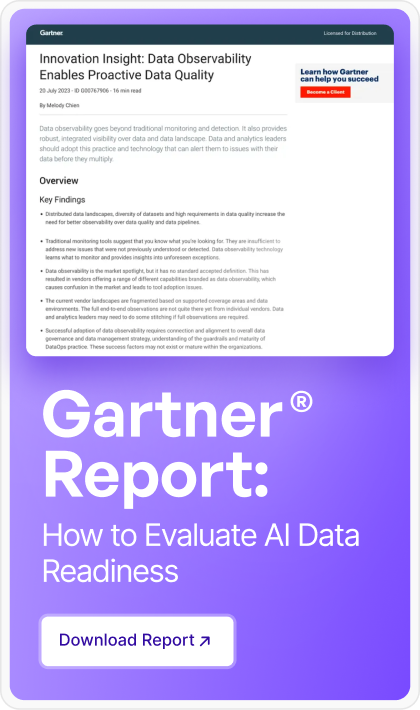Data is no longer a resource in the fintech business. The fintech market is projected to reach $1.5 trillion by 2030. Thus, demand for data products that enable everything from personalized financial recommendations to advanced fraud detection systems is likely to rise significantly in the near future. Fintech organizations need creative data management systems to handle such vast data sets in real time.
But the challenges involved are numerous, from data privacy and regulatory compliance to sophisticated data source integration. Considering this scenario, how can fintech companies leverage data to stay ahead in a market where milliseconds may make or break them?
Key Challenges in Fintech Data Management
Data management has become increasingly complex as fintech organizations grow. The following are some of the prominent challenges faced by organizations:
Data privacy and compliance
Data privacy is a significant concern since fintech businesses manage private and delicate financial and personal data. Compliance is mandatory and made more challenging by GDPR, CCPA, and PSD2 regulations. Data breaches can result in significant financial and reputational losses.
Equifax's data breach in 2017 compromised 147 million customers’ personal information, resulting in serious reputational harm and up to a $600 million financial settlement altogether. This emphasizes the necessity of effective data privacy and governance practices.
Integration and real-time processing
Fintech product development systems must combine real-time data from several sources, including payment systems, consumer information, and financial markets. Managing these complicated, fast-moving data streams without sacrificing accuracy or speed is quite challenging, especially as data quantities rise.
Regulatory Pressures Shaping Data Product Innovation
As global financial rules become rigorous, fintech organizations are under high pressure to ensure their data management policies meet compliance criteria. As per regulations such as GDPR, PSD2, and AML (Anti-Money Laundering), fintech companies must maintain high data security and transparency. This regulatory environment has driven businesses to rethink how they create and handle data products, thus fostering innovation.
Fintech companies are now using sophisticated data governance technologies to automate compliance processes, monitor data usage, and create real-time reports for regulatory authorities. By including compliance elements in their data products, these businesses lower non-compliance risks and establish themselves as trustworthy and dependable financial service providers.
Top 5 Innovative Strategies to Develop and Manage Data Products in Fintech
Fintech organizations are adopting innovative strategies to streamline operations and improve customer experience. They are increasingly using cutting-edge technologies to handle data effectively and drive business growth. Here are some top strategies:
1. Leveraging AI and machine learning
AI and machine learning (ML) have revolutionized how fintech organizations perform data observability. Predictive models and sophisticated analytics can help businesses automate risk assessments, personalize consumer interactions, and identify fraud instantly.
Data solutions, supported by artificial intelligence and machine learning, allow fintech companies to quickly generate insights from vast data volumes, thus enhancing operational efficiency and customer satisfaction.
2. Implementing real-time data processing
Real-time data processing allows fintech firms to track market developments, examine transactions, and provide quick financial services to consumers. Fintech companies can ensure that data is processed in real time by utilizing techniques such as stream processing and in-memory computing. This enables quicker response times and more accurate outcomes.
3. Adopting data integration tools
Fintech firms generally handle several data sources, from payment gateways and consumer records to market data. APIs and data lakes, among other data integration techniques, help unite these several sources seamlessly.
Fintech companies may carry out more precise analysis, lower data silos, and simplify operations by aggregating a centralized view of data, thus enhancing user experiences and decision-making.
4. Ensuring data quality and accuracy
A fintech company depends upon data quality and reliability. Poor data quality can result in inaccurate financial models, inaccurate consumer insights, and regulatory issues.
Automatic data validation and cleansing techniques ensure accurate, up-to-date, and reliable data. This not only improves decision-making but also enhances the integrity of the data products being developed.
5. Strengthening data governance and compliance
Strong data governance is a necessity in fintech innovations, considering the rise in regulatory expectations and the increase in the need to protect private financial data. Strong data governance systems ensure that data consumption follows regulations, including GDPR and CCPA. Regular audits, role-based access control, and automated policy enforcement help safeguard data, respect consumer privacy, and lower non-compliance-related risks.
Fintech firms can explore platforms such as Acceldata, which offer superior data observability solutions. This can ensure data quality, dependability, and performance across challenging data settings, thereby improving fintech product development.
Leveraging Data Products as Market Differentiators in Fintech
Fintech product development is a key market differentiator in a highly competitive industry. Here's how fintech firms may leverage their data offerings to stand out and gain advantage:
Building customer trust with transparency
Customers are more inclined to trust fintech innovations that are open about how they handle and apply data. A clear understanding of data security and privacy policies helps businesses gain confidence and strengthen long-standing customer relationships.
Personalized user experiences as a selling point
Data products enable hyper-personalization of financial services, tailoring them to meet specific consumer needs. In a cutthroat market, fintech firms that use data to offer personalized recommendations, such as loan alternatives and insurance or investment portfolios, can attract and retain clients.
Data-driven marketing and user acquisition
Fintech companies can run focused marketing campaigns using knowledge from their data offerings, thus addressing user acquisition. Analyzing consumer behavior and preferences helps businesses develop more tailored, data-driven marketing plans that boost conversion rates.
Unleashing Data Potential in Fintech
Data is a fundamental resource driving operational efficiency, client involvement, and creative inspiration in the fintech sector. Fintech organizations may overcome challenges and create strong, scalable data products by using technology advancements, such as artificial intelligence, real-time data processing, data integration, and strong data governance. Maintaining data quality and prioritizing customer experience help strengthen a company's competitive edge.
Acceldata's data observability platform enables financial institutions to fully leverage their data, ensuring real-time processing, improved data quality, and regulatory compliance. Are you ready to take control of your data? Get in touch with Acceldata to discover how its data observability for financial services helps improve your data management strategy.
Summary
Data products are the foundation of invention and expansion. Effective data usage by fintech firms helps them negotiate regulatory challenges, provide tailored experiences, and enhance operational efficiency.
Fintech companies that embrace innovative ideas can seize new opportunities, keep ahead of the competition, and maintain a lasting advantage in the constantly evolving financial landscape.














.webp)
.webp)


